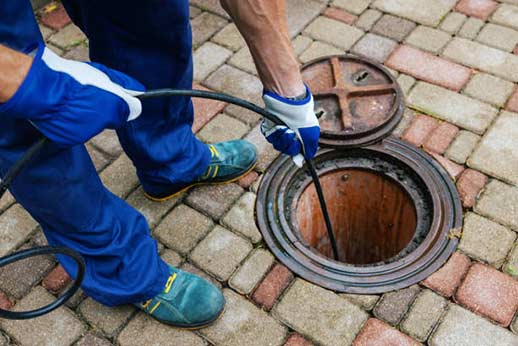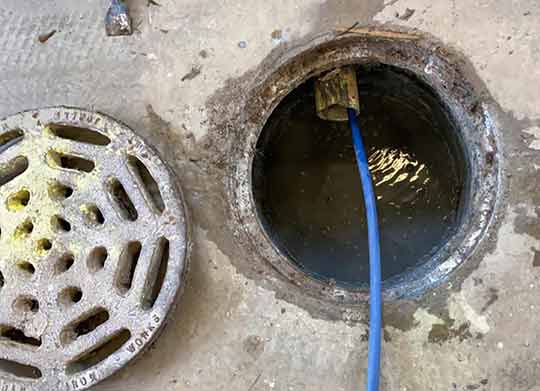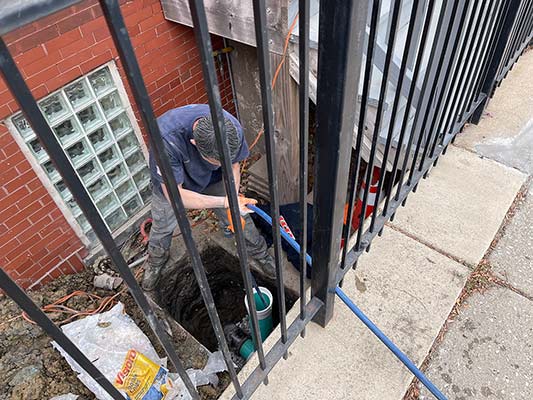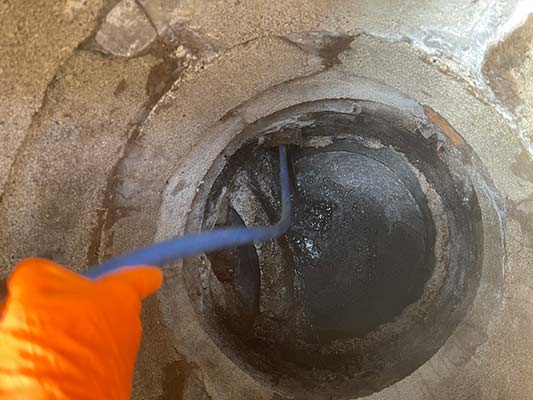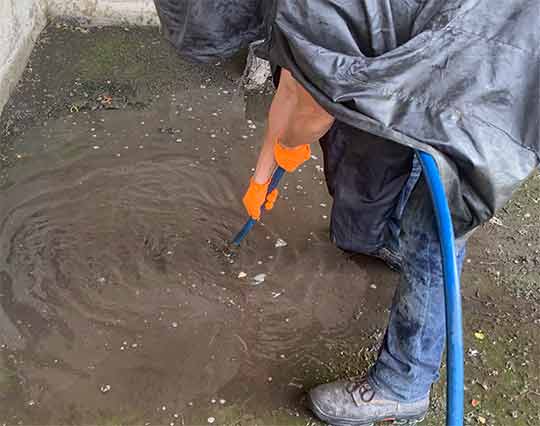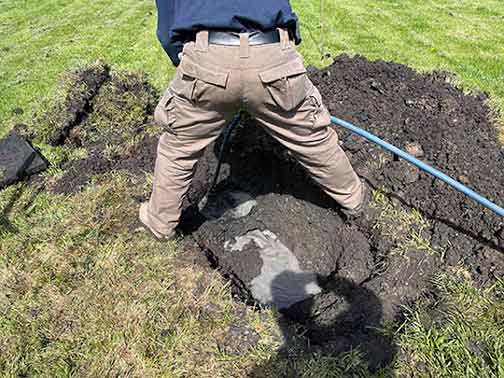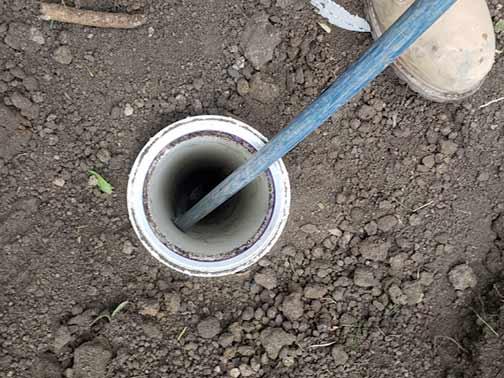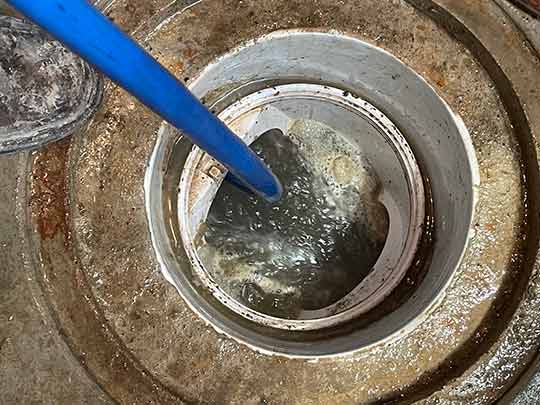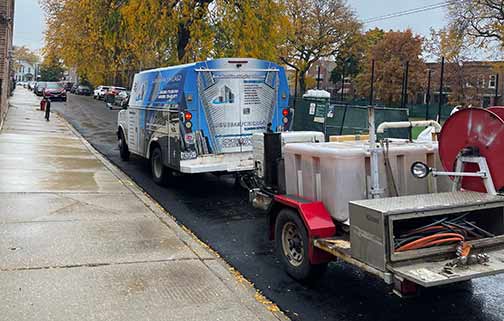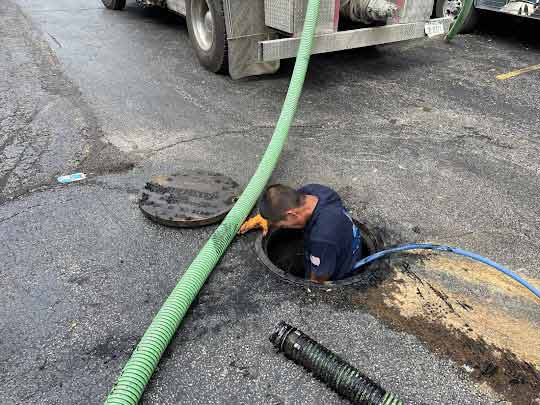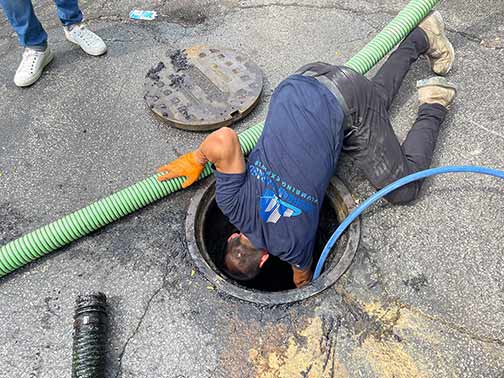Regular Maintenance and Inspection
Developing and implementing effective preventative strategies begins with ensuring a consistent schedule for the maintenance and inspection of your commercial drainage system. Regular maintenance routines are essential in identifying potential problems before they escalate into significant issues, which can disrupt operations and result in costly repairs.
Scheduling routine inspections can help detect early signs of clogs, leaks, and other drainage-related problems. These inspections should be carried out by trained professionals who can accurately assess the condition of the drainage system and recommend necessary actions. Regular maintenance activities may include cleaning the drains, removing any debris buildup, and ensuring all components are in working order.
By adhering to a strict maintenance schedule, businesses can proactively address minor issues before they become major problems, ultimately saving time, resources, and money. Furthermore, regular inspections can help extend the lifespan of the drainage system, ensuring it remains efficient and effective for years to come.
Proper Disposal Methods
Adopting and enforcing proper disposal methods within your organization can significantly reduce the risk of clogs and ensure the longevity of your drainage infrastructure. Improper disposal of waste materials is one of the leading causes of commercial drain clogs, and it is crucial to educate employees on the importance of correct disposal practices.
Common culprits of drain clogs include grease, oils, food particles, paper products, and other non-biodegradable materials. To mitigate these issues, businesses should implement clear guidelines for waste disposal and provide appropriate disposal facilities, such as grease traps, food waste disposers, and recycling bins.
Additionally, it is essential to communicate the potential consequences of improper disposal methods to employees, highlighting how it can lead to costly repairs, operational disruptions, and potential health hazards. By fostering a culture of responsible waste management, organizations can minimize the risk of clogs and maintain a healthy and efficient drainage system.
Employee Training
Educating and training employees on best practices for drainage use and maintenance can play a crucial role in preventing clogs and maintaining efficient operations. Employees are often the first line of defense against potential drainage issues, and it is essential to equip them with the knowledge and skills needed to identify and address problems early on.
Training programs should cover various topics, including proper waste disposal methods, recognizing early signs of drainage problems, and understanding the importance of regular maintenance. Additionally, employees should be trained on how to use and maintain any equipment related to the drainage system, such as grease traps and food waste disposers.
By providing comprehensive training and fostering a sense of ownership among employees, businesses can create a proactive approach to drainage maintenance, ultimately reducing the risk of clogs and ensuring smooth operations.
Advanced Drainage Technologies
Leveraging advanced drainage technologies can enhance your preventative measures and provide long-term solutions to potential clogging issues. Innovations in drainage technology offer businesses a range of tools and systems designed to improve the efficiency and reliability of their drainage infrastructure.
Some advanced technologies include the installation of grease traps, automated drainage monitoring systems, and water jetting equipment. High-efficiency grease traps are designed to capture grease and other waste materials more effectively, reducing the risk of clogs and improving the overall performance of the drainage system.
Automated drainage monitoring systems provide real-time data on the condition of the drainage system, allowing businesses to identify and address potential issues before they escalate. These systems can also send alerts when maintenance is required, ensuring that the drainage system remains in optimal condition.
Hydro jetting equipment is another valuable tool for maintaining clean and efficient drains. This equipment uses high-pressure water jets to remove debris and buildup from the drainage system, preventing clogs and ensuring smooth operations.

Hydro jetting equipment is another valuable tool for maintaining clean and efficient drains. This equipment uses high-pressure water jets to remove debris and buildup from the drainage system.
Professional Assistance
Engaging professional assistance for regular check ups and instant problem-solving is critical in maintaining an optimal drainage system. While in-house maintenance and inspection efforts are essential, the expertise of trained professionals can provide additional assurance that your drainage system is in good working order.
Professional drainage service providers have the experience, knowledge, and equipment needed to identify and address potential issues that may not be apparent during routine inspections. They can also perform more extensive maintenance tasks, such as deep cleaning, repairs, and replacements, ensuring that your drainage system remains efficient and reliable.
By partnering with a reputable drain cleaning service provider, businesses can benefit from expert advice, timely interventions, and peace of mind knowing that their drainage system is well-maintained and capable of supporting their operations.
Benefits of Preventative Strategies
Understanding the numerous benefits of implementing preventative strategies can help organizations prioritize these practices, leading to cost savings and smoother operations. Preventative measures can significantly reduce the risk of clogs, leaks, and other drainage related issues, ensuring that the drainage system remains efficient and reliable.
Some key benefits of preventative strategies include:
- Reduced repair and maintenance costs: By addressing potential issues early on, businesses can avoid costly repairs and replacements that may arise from significant drainage problems.
- Minimized operational disruptions: Preventative measures help maintain the smooth operation of the drainage system, reducing the likelihood of downtime and interruptions to business activities.
- Extended system lifespan: Regular maintenance and proper disposal practices can extend the lifespan of the drainage system, ensuring it remains functional and efficient for years to come.
- Improved health and safety: A well maintained drainage system can help prevent health hazards associated with clogs, leaks, and other drainage related issues, promoting a safe and healthy work environment.
- Environmental benefits: Proper waste disposal and efficient drainage systems can reduce the environmental impact of business operations, contributing to sustainability efforts.
By understanding and embracing the benefits of preventative strategies, businesses can prioritize the necessary actions and investments to maintain an efficient and reliable drainage system, ultimately supporting their overall success and sustainability.

